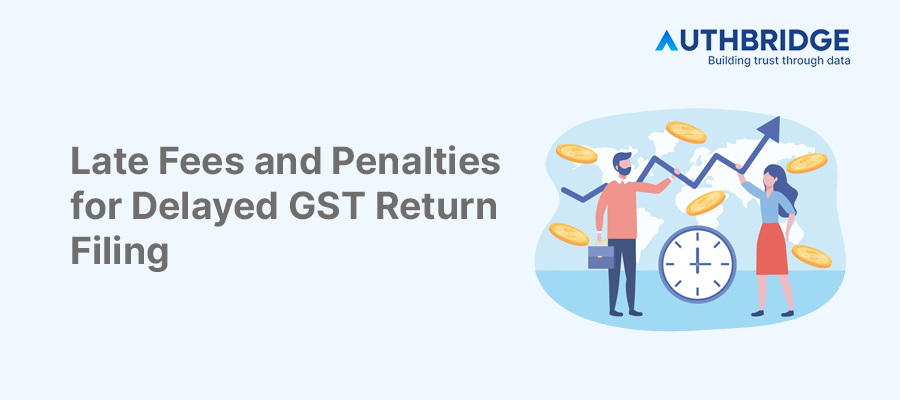Navigating Late Fees And Penalties: A Guide To Timely GST Return Filing

1. Overview of GST Late Fees and Penalties
Introduction to GST Late Fees
The Goods and Services Tax (GST) regime in India mandates timely filing of returns by registered businesses. Failure to comply results in a late fee, designed to encourage punctuality and ensure compliance. This fee is applicable for delayed filings of various GST returns, including GSTR-1, GSTR-3B, and others. The late fee structure is predefined and varies based on the type of return and the length of the delay.
Understanding Penalties for Delayed GST Return Filing
Beyond late fees, the GST law also provisions for penalties in case of significant non-compliance or evasion. Penalties are more severe than late fees and are imposed in cases of fraudulent activities or substantial errors in GST filings. These are determined based on the nature and extent of the violation, aiming to uphold the integrity of the GST framework.
2. Detailed Breakdown of GST Late Fees
Late Fees for GSTR-1, GSTR-3B, and Other Returns
For each day of delay, businesses incur a late fee. Specifically, for GSTR-1 and GSTR-3B, the late fee is ₹20 per day for nil returns and ₹50 per day for others. This fee applies to both CGST and SGST segments, effectively doubling the cost for pan-India operations.
Return Type | Nil Return Late Fee (Per Day) | Other Returns Late Fee (Per Day) |
GSTR-1 | ₹20 | ₹50 |
GSTR-3B | ₹20 | ₹50 |
Calculation of Late Fees
The late fee is calculated from the due date of filing until the actual date of filing. For example, if a return due on the 20th is filed on the 25th, the late fee is calculated for five days.
Late Fees for Annual Returns
Annual returns (GSTR-9) have a higher late fee cap, set at ₹200 per day (₹100 for CGST and ₹100 for SGST), with a maximum of 0.25% of the taxpayer's annual turnover in the respective state or union territory.
3. Interest on Delayed GST Payment
Calculation of Interest
Interest is charged on the outstanding tax amount, not on the entire turnover. The current interest rate is 18% per annum for delayed tax payments. The calculation is done on a daily basis from the day following the due date till the date of payment.
Interest Rates for Different Scenarios
In cases of undue or excess claim of input tax credit or undue or excess reduction in output tax liability, the interest rate is 24% per annum.
4. Waivers and Reductions in Late Fees
Government Notifications on Waivers
The government occasionally issues notifications to waive or reduce late fees for specific periods, especially during technical glitches on the GST portal or in the wake of unforeseen circumstances like natural disasters.
Conditions for Availing Reduced Late Fees
Waivers or reductions are subject to conditions such as filing returns within a specified grace period. Businesses should stay updated with official notifications to avail these benefits.
5. Impact of Late Fees and Penalties on Businesses
Financial Implications
Accumulated late fees and penalties can significantly impact the financial health of a business, especially for small and medium enterprises (SMEs).
Compliance Rating Impact
Frequent delays in GST filings can adversely affect a business's compliance rating, potentially leading to increased scrutiny by tax authorities.
6. How to Avoid Late Fees and Penalties
Timely Filing Tips
- Set reminders for due dates.
- Keep documents and records organized for smooth filing.
- Regularly update accounting and GST software.
Investing in reliable GST software can automate and streamline the filing process, reducing the risk of delays.
This guide aims to equip businesses with the knowledge to navigate the complexities of GST late fees and penalties, ensuring timely compliance and minimizing financial risks. Staying informed and proactive in GST filings can safeguard businesses against unnecessary expenses and legal complications.
Category

Abhinandan Banerjee
(Associate Manager - Marketing)
Abhinandan is a dynamic Product and Content Marketer, boasting over seven years of experience in crafting impactful marketing strategies across diverse environments. Known for his strategic insights, he propels digital growth and boosts brand visibility by transforming complex ideas into compelling content that inspires action.



